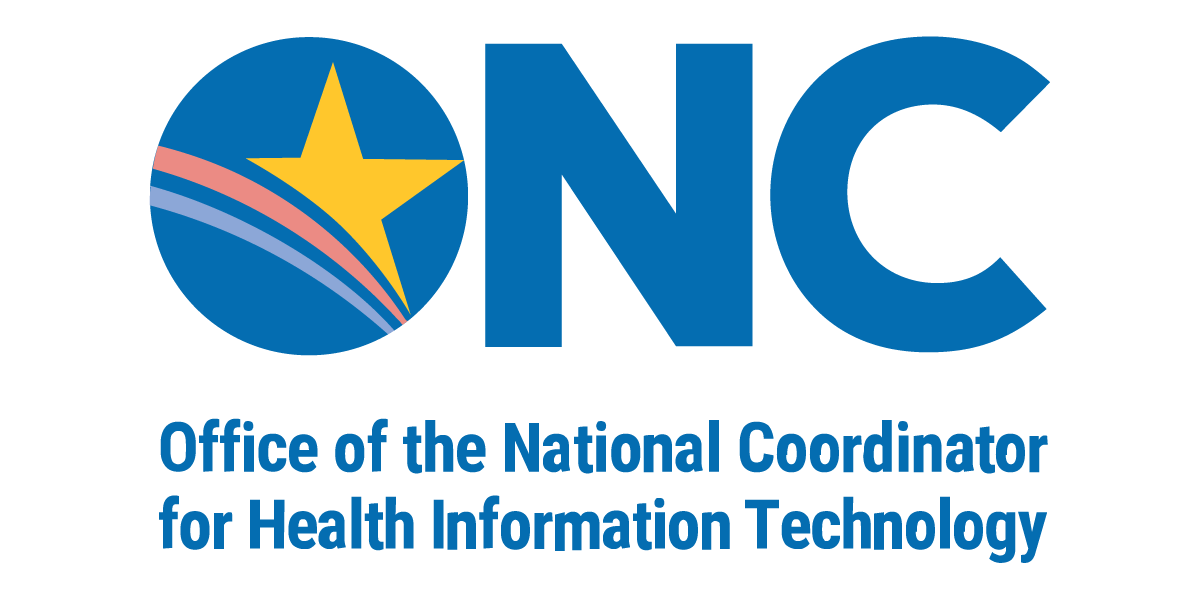Interoperability Training Courses
The Office of the National Coordinator (ONC) has developed training modules around the Stage 2 Meaningful Use (MU) Rule to train Eligible Professional (EPs) and Critical Access Hospitals (CAHs) on how to implement new standards to support
- Transitions of Care
- Lab Exchange
- Patient Engagement
- Public Health Measures.
The web based training courses on each of these four areas are designed to better equip personnel assisting providers and hospitals in meeting these new objectives. The result is a five part series of web-based training courses that provide real-world examples and a story-based approach to highlight the interoperability of EHR standards in the aforementioned key areas.
The series consists of five self-paced courses that allow learners to access the material as their schedule permits, providing flexibility to take the entire course at once or over a period of time.
Read the Interoperability Training factsheet [PDF - 257 KB]
-
- Training modules are optimized for minimum 1024 x 768 screen resolution. This is to ensure the learners have the best experience accessing the course.
Interoperability Basics Training
Interactive course using stories, analogies, and practical examples to highlight new vocabulary, content, transport, and services standards introduced in the Meaningful Use Stage 2. This course also introduces the concept of interoperability building blocks and utilizes stories to show concepts in practice.
The series consists of five self-paced courses that allow learners to access the material as their schedule permits, providing flexibility to take the entire course at once or over a period of time.
- Defining Interoperability
- Interoperability Path to Meaningful Use Stage 2
- Building Blocks of Interoperability
- The Effect of Interoperability on Categories of Care
Interoperability and Transitions of Care
The goal of this course is to demonstrate how to apply Meaningful Use (MU) Stage 2 interoperability standards for transitions of care and medication (clinical information) reconciliation.
The course consists of short lessons with the objectives of:
- Identify changes between MU Stage 1 and Stage 2 objectives, measures, and requirements as they relate to transitions of care and medication (clinical information) reconciliation
- Identify the Office of National Coordinator for Health Information Technology (ONC) 2014 certified electronic health records technology (CEHRT) standards and certification criteria (S&CC) basics to provide the knowledge required to work with certified vendors and support eligible providers (EPs), eligible hospitals (EHs), and critical access hospitals (CAHs) in implementing MU Stage 2 interoperability requirements
- Identify provider and hospital attestation requirements and how CEHRT supports these requirements
- Identify specific provider or facility actions that constitute achievement of MU Stage 2 transitions of care and medication reconciliation objectives and measures
Interoperability and Lab Exchange
The Interoperability and Lab Exchange course outlines the differences between MU Stage 1 and 2 requirements as well as includes user stories to highlight the benefits and potential roadblocks to the new thresholds, standards, and certification criteria. The Lab Exchange course equips MU2 implementers with the tools needed to better understand Lab Exchange and practical solutions for challenges they may face along the path to meeting the Stage 2 objectives and measures. The course includes the following lessons:
- Introduction to Lab Exchange
- Incorporating Structured Lab Data
- Lab Results Interface Guide
- LOINC Codes
- Sending Lab Results
Interoperability and Patient and Family Engagement
The Interoperability and Patient and Family Engagement course outlines the changes between MU Stage 1 and 2 requirements as they relate to patient and family engagement. To accomplish this learning objective, the lesson will present how to:
- Identify the benefits of interoperability to enable patient and family engagement
- Describe the differences between MU Stage 1 and Stage 2 requirements for patient and family engagement
- Describe the rationale for the changes between MU Stage 1 and Stage 2 requirements
Interoperability and Public Health
The Interoperability and Public Health course provides an overview of steps providers must take to begin the onboarding process with their Public Health Agency to begin submitting data electronically. The training describes the increased level of effort providers can anticipate and changes in requirements from MU Stage 1 to MU Stage 2. The course identifies requirements, standards, data transport mechanisms and implementation guides for each public health domain – immunization, reportable lab results, syndromic surveillance, centralized cancer registries and other specialized registries. The course covers potential challenges providers and EHR vendors may encounter with public health data submission.


